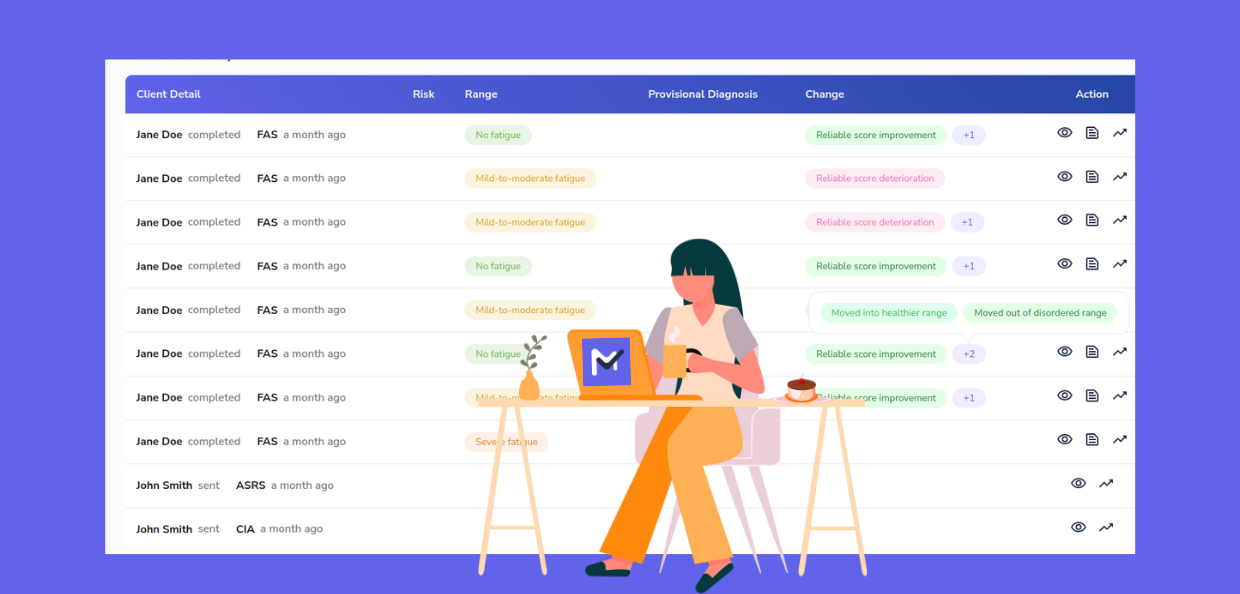A Game-Changer in Clinical Practice
Introduction:
As the field of mental health care continues to advance and adapt, clinicians are increasingly in search of tools that not only enhance their efficiency but also deepen the accuracy and comprehensiveness of their assessments. One such groundbreaking feature is the Smart Tags in mental health assessments, a key innovation in Measurely’s platform. These Smart Tags are more than just labels; they are a leap forward in providing detailed, algorithm-driven insights into a patient’s mental health.
What are Smart Tags?
Smart Tags in mental health assessments are algorithmically generated labels that provide quick, insightful summaries of a patient’s mental health status based on specific outcome measures. These tags range from indicating severity levels to suggesting provisional diagnoses and tracking changes in patient behavior over time.
Key Features of Smart Tags:
- Severity Bands:
- Smart Tags categorize patients into different severity bands (e.g., mild, moderate, severe) based on their assessment scores. This immediate categorization aids clinicians in prioritizing care and tailoring treatment plans.
- Provisional Diagnosis Tags:
- Beyond the primary assessment, Smart Tags can suggest additional diagnoses. This feature helps in painting a more comprehensive picture of a patient’s mental health, ensuring that no significant aspect is overlooked.
- Behavioral Change Indicators:
- These tags track and compare current patient responses to past behaviors, offering insights into the progress or deterioration over time. Such dynamic tracking is crucial for timely interventions.
- Reliable Improvement and Deterioration:
- Clinicians can quickly identify whether a patient is showing reliable improvement or deterioration. This feature is pivotal in making informed decisions about treatment modifications or continuations.
The Impact of Smart Tags in Clinical Practice:
- Enhanced Assessment Accuracy:
- By providing immediate, data-driven insights, Smart Tags enhance the accuracy of mental health assessments, allowing for more precise treatment.
- Time Efficiency:
- The automated nature of Smart Tags saves significant time for clinicians, reducing the need for manual analysis of each assessment result.
- Improved Patient Outcomes:
- With more accurate diagnoses and timely recognition of changes in patient conditions, Smart Tags contribute to improved patient outcomes.
- Data-Driven Decision Making:
- Clinicians can make informed decisions backed by concrete data, moving away from guesswork and assumptions.
Conclusion:
Smart Tags in mental health assessments are more than just a feature; they are a transformative tool in the realm of mental health care. By providing detailed, accurate, and timely insights into a patient’s mental health status, Smart Tags empower clinicians to deliver personalized, effective care. As we continue to embrace technological advancements in healthcare, features like Smart Tags by Measurely are leading the way in shaping a more informed, efficient, and successful clinical practice.
Check out our upcoming features in Measurely.


